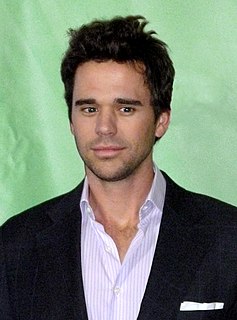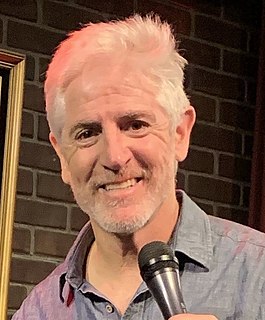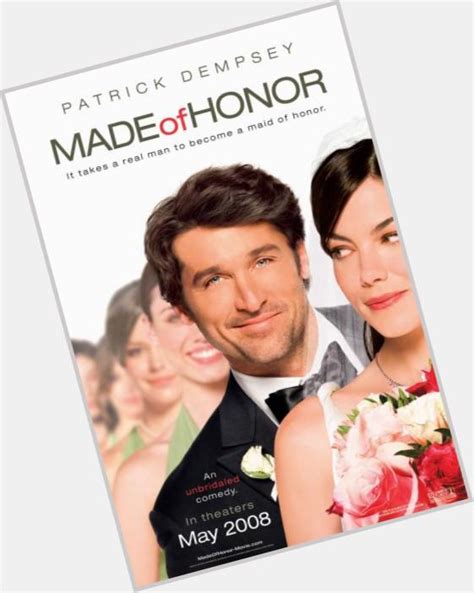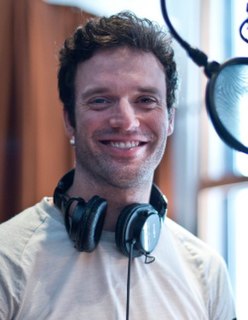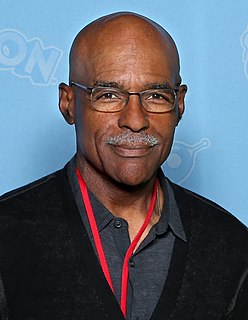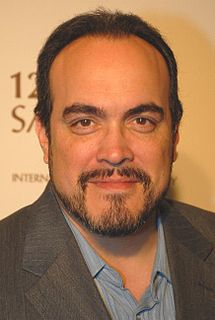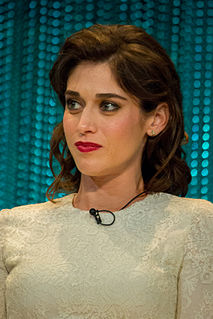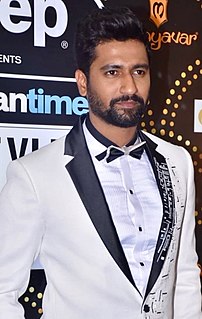A Quote by David Walton
In TV, you may think your character's one thing for two episodes, and then the third episode it could be something different.
Related Quotes
A ghostly side note Soldier boy Miller played a Lucifer-like character in the final two episodes of Joan of Arcadia. Coincidence I do find it strangely poetic, ... that a character who shows up on a show about God to play something kind of satanic winds up in the very last two episodes of that show, and then appears in the show that replaces that show on its exact time and night the following season.
The one thing that we wanted to make sure in the pilot [of "Mary and Jane"] is that we could go everywhere. Part of the fun of them being a delivery service is that they go to different areas episode to episode. We do have an episode in the beach and there is an episode in the luxury rehab. It's all different kinds of things we are making fun of in LA.
I was talking to Shonda Rhimes the other day and I said, "I. Do. Not. Know. How. You. Do. This." While we're writing episode 10, episode 6 is shooting, episode 3 is in the edit, and episode 2 is in its color session...You've got seven episodes in different parts! It's a wild, wild, wild ride, which I thoroughly enjoyed. It was badass and amazing.
Ron Moore. He was the guy that on our show and Deep Space Nine wrote the best Klingon episodes. He wrote great episodes in general but he wrote the best Klingon episodes. I always could tell when he was going to write a Klingon episode because he was able to grow a beard really quick and I’d see him with the beard, like a Worf-beard, and I go "Ah, Klingon episode coming up!" and he goes "Oh yeah."
People say that you want to be varied in your career, and I've done so many things and am very appreciative. But, the one thing I've never done and wanted to do was to be a regular on a TV show, where you get 22 weeks of the year to develop and play a character. I've done arcs of five or eight episodes on shows, but I'd like to have a character that's rich enough and deep enough to want to explore and live with for a few years. Playing the same character, but doing different scenes seems very exciting to me.
I love it and it is a blessing to be able to have seventy-five to eighty episodes to develop a character and find your voice. You have a similar through voice, and yet you are making different decisions, and so you act differently and you make different choices, as that is what your character would do.
It's a different thing with cable TV. You don't have to have your characters be lovely again by the end of the episode. And in this era of the male antiheroes on cable TV, you don't even need to make them likable; you just need to make them compelling. As opposed to film, where it's still those basic tropes of good versus evil. But for women, I don't think that has been widely seen yet.
There's something inherently more appealing about the idea that you could reveal and tell stories about characters over the course of a TV season - 13 or 26 episodes, whatever it might be - than in the course of one two-hour movie. You can do so many more novelistic kinds of things on a TV show - with time, with gradual development of relationships, and so on - than you could possibly do in a movie. And that is very appealing.
As an actor, if you want to explore something new inside you, you need to do something different that you don't do in your regular life. You need to think in a different way. It is my duty to think like the character that I am given and believe in his mindset; only then I will be able to portray it.
I think what people watch television for is the emotional continuity, from episode to episode, and feeling that the experience that they had, four episodes ago, has actually been building to an episode that comes later, and knowing that the characters are growing, as a result of that, and making mistakes, is really, really important to the way people connect to television.
When we were doing 'The West Wing,' the hardest thing about doing 'The West Wing' was being compared to yourself. You go out there and want every episode to be as good as your best episode. I wrote 88 episodes of 'The West Wing,' and when you do that, one of them is going to be your 88th best, so your 88th best better be pretty good.
